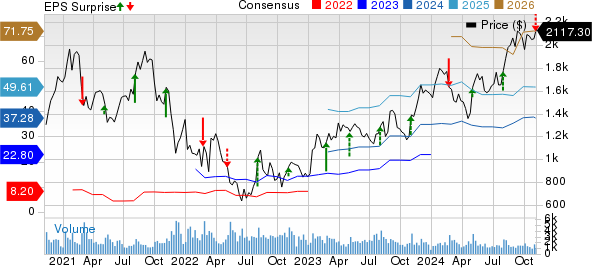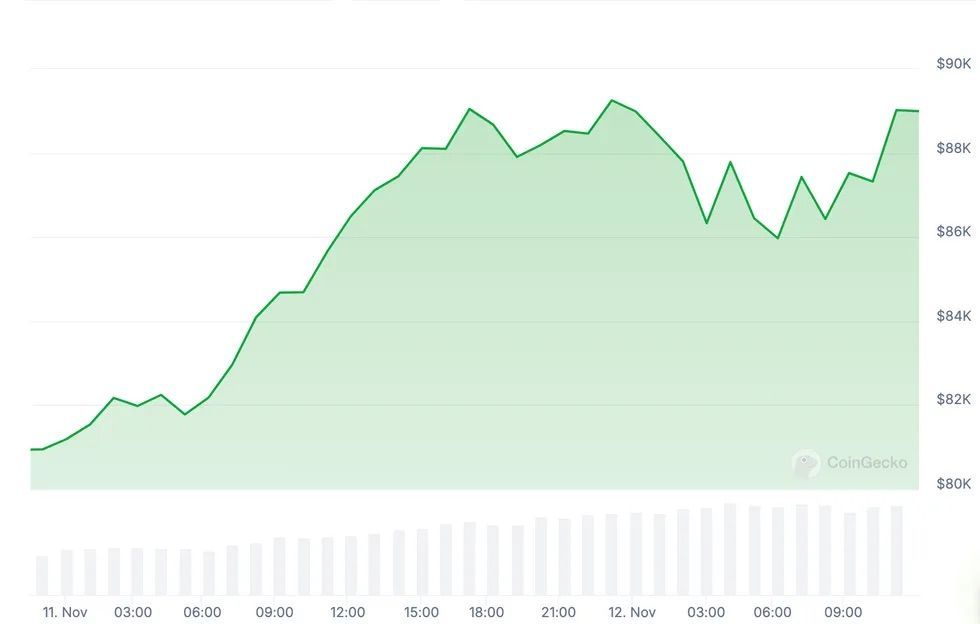On Wednesday, a wave of red engulfed Chinese stocks as investors witnessed a synchronized plummet in some of China’s premier companies. The downhill trend was triggered by a trifecta of factors – a disappointing financial report from one firm, lingering worries about China’s economic health, and regulatory measures that rattled the stock market.
As the day progressed, several tech giants from China felt the heat, notably Baidu (NASDAQ: BIDU) witnessing a 7.2% drop, Tencent Holdings (OTC: TCEHY) declining by 3.9%, and Alibaba (NYSE: BABA) falling 3.4% by 1:22 p.m. ET.

Image source: Getty Images.
Baidu’s Disappointing Performance
The disappointment stemmed from Baidu’s recent fourth-quarter results, which failed to impress investors. The company clocked in revenue of $4.9 billion, a mere 6% increase year-over-year, while diluted earnings per American depositary share (ADS) plummeted by 50% to $0.95.
Analysts had set the bar higher with estimates predicting revenue of $4.86 billion and per-ADS earnings of $2.48. The stark reality saw Baidu’s profits considerably undershoot investor expectations.
Despite a silver lining in the form of the revenue-boosting ERNIE, Baidu struggled due to heavy expenditure on artificial intelligence (AI), which eroded profits. Revenue from its core operations, mainly online advertising, cloud computing, and AI, saw a modest 7% growth to $3.87 billion, while iQiyi’s performance lagged, with a mere 2% increase to $1.1 billion.
An Unsettling Economic Climate
Baidu’s results echo a broader narrative of economic challenges plaguing China. A high rate of youth unemployment, sluggish growth, and dwindling consumer expenditure paint a grim picture of the nation’s financial landscape.
Consumer spending, a key pillar of any economy, has been faltering, indicating potential trouble ahead. Compounding the woes is the turmoil in China’s real estate sector, with recent events around property giant China Evergrande Group intensifying concerns. The constriction in real estate stands out, with housing transactions seeing a significant slump.
Regulators’ recent crackdown on short-selling and quantitative trading practices has further soured investor sentiment, casting a shadow on the market and exacerbating the downward trajectory of prominent stocks.
Implications for Investors
With China’s economic climate deteriorating, investors face a delicate decision-making juncture. The trio of companies – Baidu, Alibaba, and Tencent – heavily rely on consumer spending and robust economic conditions for sustenance:
- Baidu, akin to Alphabet’s Google, heavily depends on digital advertising – a sector vulnerable to economic sluggishness.
- Alibaba, a major player in digital retail, is directly impacted by fluctuations in consumer spending.
- Tencent’s revenue streams from advertising, gaming, and related services are intricately linked to consumer discretionary income levels.
In light of macroeconomic challenges and rising unemployment rates, the deceleration in consumer spending could further burden an already fragile economic ecosystem. While these stocks currently boast attractive valuations, trading at significant discounts to the broader market, investors must factor in China’s economic instability and adopt a long-term perspective before committing.
Investing in China, albeit rewarding, carries additional risks. Prudent portfolio management dictates that exposure to Chinese equities should be a measured component within a well-diversified investment strategy.




